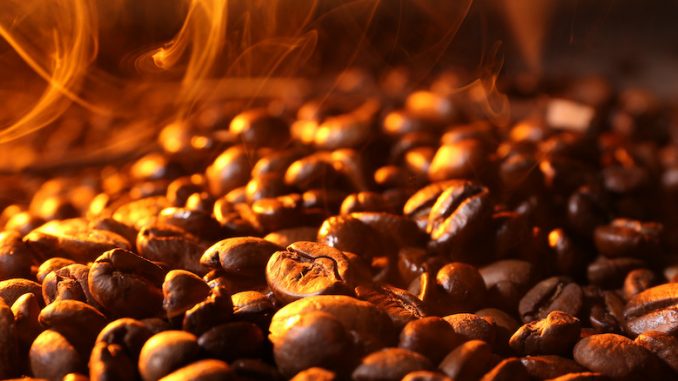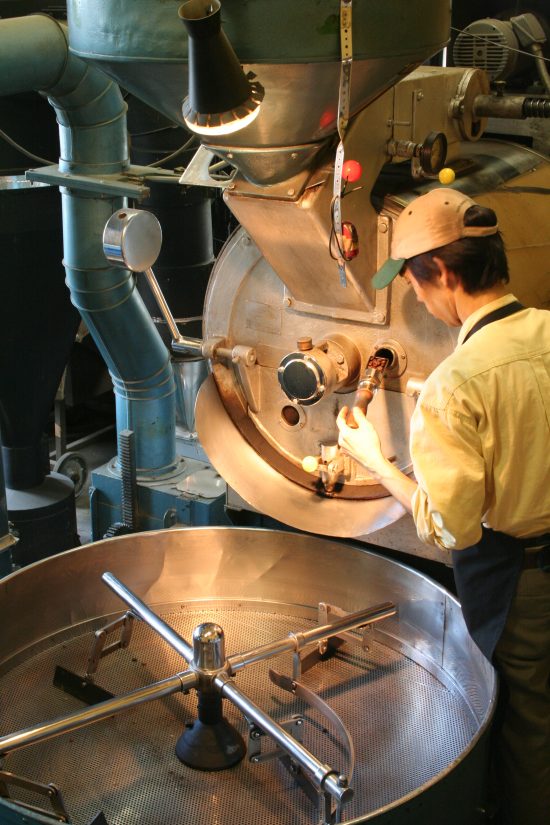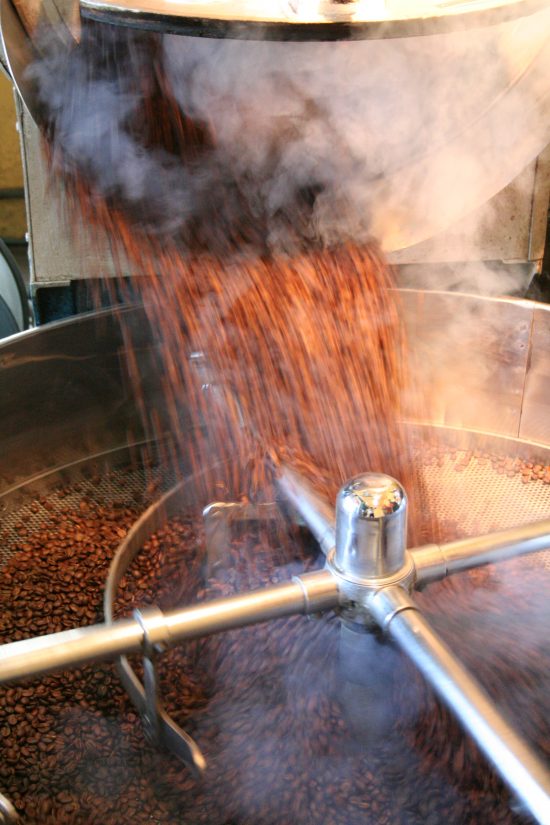
Charcoal-roasted coffee takes smoky tasting notes literally.
BY KATRINA YENTCH
BARISTA MAGAZINE ONLINE
Photos courtesy of Japanese Coffee Co.
Many coffee lovers have preferences for fruit, acidity, and brightness in their daily brews, but there are also plenty of folks out there who like it dark, syrupy, and smoky. Home coffee geeks have explored eccentric ways to amplify the taste of smoke in their coffee, implementing techniques like cooking green beans in the oven, on a cast-iron pan, or even infusing ground coffee on the grill with wood chips for some added campfire vibes. For fans of these dark-roast styles and Japanese coffee, they may find interest in Sumiyaki coffee.

Sumiyaki coffee translates to charcoal burner coffee, which is a rare style of coffee that can be found in pockets of Asia, but has been popularized in Japan. Large-scale manufacturer UCC may be the biggest promoter of charcoal-roasted coffee currently, selling it as an instant powder, but smaller businesses like Japanese Coffee Co. and I Cup Taiwan have also begun to offer it for whole-bean and brewed-espresso options. According to Japanese Coffee Co., Sumiyaki coffee originated in 1933, but is only now gaining momentum as an additional method for heating green coffee.
As many roasting aficionados know, the two most common styles of heat applied during coffee roasting are conduction and convection, otherwise known as direct contact and hot air. Many coffee roasters also use gas burners as a source for heat, but in this case, charcoal is the source of heat. Similar to hibachi-style grilling, Sumiyaki will impart smoky flavors to the beans before they are dropped into the cooling tray, resulting in “plump beans with a fluffy finish.” They also have a uniform body due to the charcoal’s ability to maintain specific temperatures at a prolonged amount of time more efficiently than a traditional gas burner.
Kei Nishida is the founder of Japanese Coffee Co., whose new coffee brand (a subsidiary of his tea line Japanese Greentea Co.) works exclusively with charcoal-roasted coffee. “Charcoal-roasted coffee has been around in Japan for a very long time, but no one outside Japan ever paid attention to it,” he explains. “Whenever I go back to Japan, I always order them at cafés because I cannot have them here in the U.S. where I live. I am a fan of this coffee, and I thought that the world needs to know this. There are so many hidden gems in Japan that are not exposed to the outside, maybe it is because of the language barrier. … I am confident that this charcoal-roasted coffee can do the same or even more to ‘wow’ the world of coffee lovers.”

Kei explains that charcoal-roasted coffee is superior because of its ability to deeply “cook” the insides of coffee beans, unlike traditional roasting, which sometimes leaves the insides of the green beans with unnecessary moisture. Additionally, Sumiyaki coffee benefits from a surplus of carbon monoxide, which delays the aging process of coffee as oxidation occurs. As mentioned earlier, this ability to deeply cook the beans results in more uniformity in the look and taste of the roast. The taste, aside from its obvious smokiness, is described by Kei as “a balanced, well-rounded taste and flavor profile, as well as a smooth mouthfeel.”
While Kei champions this method as a strong contender for new-age roasting, he does recognize the high cost of producing Sumiyaki coffee. It also works best with Binchotan charcoal, which is a type of charcoal that has no moisture content at all, is difficult to ignite, and can get to extremely hot temperatures. Additionally, it can be a challenge to adjust heat between varying temperatures, requiring great skill to stabilize it. However, if achieved, it can be a rewarding method to replicate for dark-roast coffees, and a style that Kei sees having potential to be a standout trend moving forward.
“I am in (the) process of bringing this coffee to different coffee competitions around the world to see where it can stand in the world of the best coffee,” he says. “Just like what we did with the tea to win the Global Tea Championship, I hope this coffee to be recognized by the best of the best coffee lovers around the world. My dream is to have the word Sumiyaki as a category of coffee in almost every café, like what happened with nitro cold brew.”
If the idea of roasting coffee on your grill has ever crossed your mind, this might be the time to go try it, for Sumiyaki has confirmed that it can be performed on a larger scale to rich and smoky perfection.

